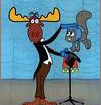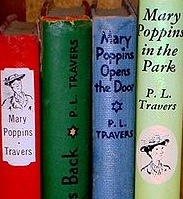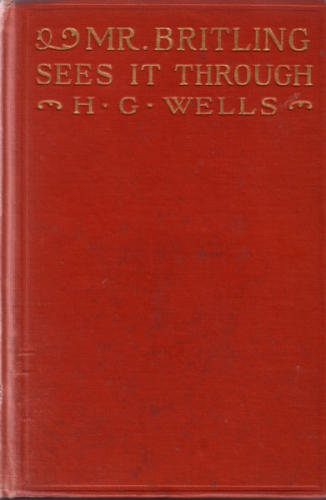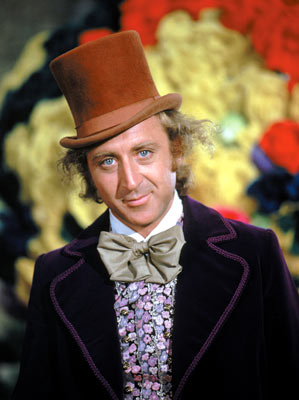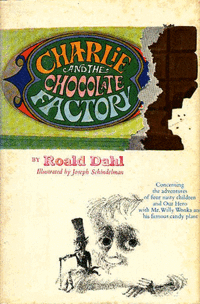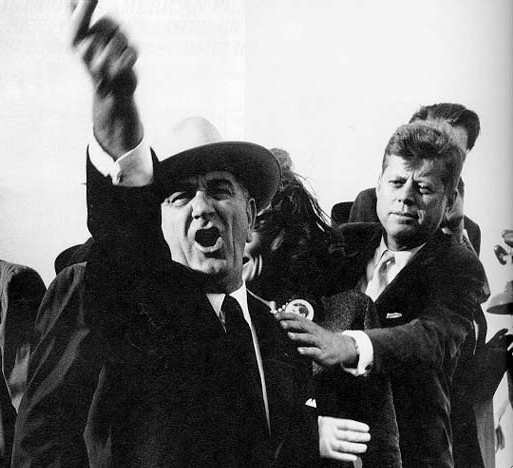You know, the more I plow through the list of Idol first-page rejection reasons (if the very concept is news to you, please see the first post in this series.), the more obvious it is to me why it took me more than two years — an eternity in blogging time — to revisit it: these criteria genuinely come as a total surprise to the vast majority of aspiring writers. Perhaps not all of them, but pretty much everyone seems to get caught off-guard by at least a few.
Intellectually and ethically, I’m fully aware that I’m not personally responsible the deer-in-the-headlights response so many aspiring writers have to this information. I’m just the bearer of the bad tidings, not the instigator of them. But still, delving into them makes me feel just a touch guilty, because frankly, as an editor and not-infrequent contest judge, I kind of agree with most of the items on this list.
There, I said it. And I feel better for it. Please don’t throw things at me.
The fact is, most of the reasons on the rejection list are pretty sound, both literarily and in terms of book marketing. Admittedly, I would probably read more than a page before writing off a manuscript based on any one of these criteria alone, but in practice, these first page problems are seldom seen alone. Like spelling in grammatical errors, they tend to travel in packs.
Which means — are you sitting down? — that even manuscripts rejected on page 1 often contain more than one red flag.
Startling, but true. Millicent the agency screener actually does have a pretty good excuse for abiding by these criteria, just as she may be excused for taking a submission that deviates obviously from standard format less seriously: although the first page of a book may not be a representative sample of the writing — often, it isn’t, because writers tend to summarize more when providing backstory, and first pages are notoriously common hang-outs for backstory — a submission exhibiting several of these problems on page 1 probably does have similar problems later in the book as well.
So as firmly as I am on the writers’ side of this particular fence emotionally, I do think that submissions without this particular set of problems tend to be better — or at any rate more polished — than those that do not. My objection is that aspiring writers are very seldom made aware of where their submissions run afoul of industry expectation.
All of which is to say: I have a lot of ground to cover today. Because this is the day, my friends, that we begin launching into the real nitty-gritty, the technical authorial choices. First up on the roster: tense.
So fasten your seatbelts, campers; it’s going to be a bumpy night.
Given how often aspiring writers get wind of super-broad generalizations about tense — the most popular at the moment being that it’s impossible to land an agent for a present-tense narrative, particularly in the first person — were you surprised to see how few of the Idol rejection reasons concerned authorial tense choices? There were only two:
#53, the writing switching tenses for no apparent reason.
#71, “Why is this written in the present tense?”
Editorially, the first is more likely a consistency problem than a conscious authorial choice — although the sheer frequency with which it turns up in the early pages of manuscripts might suggest otherwise. As any agency screener will tell you, tense-shifting is surprisingly common in submissions, for reasons unfathomable to them.
I have a pretty good guess, however, so let me take a crack at it.
Many, many books begin their sojourns on this terrestrial sphere written in the present tense, only to be changed to the past tense later on, when the author realizes some of the practical difficulties of perpetually speaking in the present. And visa versa. Sometimes, writers just do not remember to go back and change every single verb after they’ve made the decision to change to the past tense.
Thus, unintentionally, quite a lot of submissions appear to be written in two tenses, when their writers probably only intended the narrative to be in one.
Which means, in practice, that unexplained tense switches are very frequently not deliberate choices, but proofreading problems — and ones that your word processor’s spelling and grammar checker is unlikely to catch, since these tools concentrate at the word and sentence level. They often will fail to point out tense consistency problems even — and I tremble to tell you this, but I see it constantly — if two of the tenses fall within a single sentence.
“Wait!” I hear a bevy of suddenly pale souls out there crying. “What do you mean, my grammar checker won’t catch tense problems? Isn’t that what it’s there to do?”
Counterintuitive, isn’t it? But long experience has led me to conclude that on the whole, the Microsoft Corporation either believes very deeply in an individual’s right to choose to switch tenses as often as he pleases — or just does not care very much about whether the first and fourteenth sentences of your novel are consistently tensed, or even the first and the second.
Yet another reason, in case you needed still more, that computerized spell- and grammar-checkers alone are not adequate replacements for good old human proofreaders. I just mention.
Don’t believe me? Okay, I’m writing this in the latest version of Word; let’s see what happens when I start to write a story with severe tense problems. I have to say, I’m not sanguine about this experiment, since my grammar checker routinely begs me to use the wrong form of there, their, and they’re and frowns upon every single use of a semicolon, apparently on general principle, but hey, I’m open to being mistaken about this. Here goes:
Jane threw up on her date, Stan, who backs away in horror. It was a cold, clear, moonlit night, ideal for dating. Yet Jane is sad, not because she is drinking so much, per se, but because Stan soon will be so plying her with alcohol that she will no longer have been able to tell the difference between the past, present, and future. The realization made her weep all the harder. Stan weeps as well.
Okay, now I’m running this paragon of purple prose through my very up-to-date Word grammar checker…which, you will no doubt be thrilled to hear, did not raise a single objection to the preceding paragraph. It did, however, raise all kinds of red flags about my technically correct use of the word “which” in my last sentence.
I rest my case. Proofread VERY carefully for unintentional tense switches, particularly if you are writing in the present tense.
Tense lapses are especially very difficult to catch when proofreading on a small computer screen, too, or indeed, any computer screen at all, since backlit screens tend to make all of us skim. Long-term visitors to this site, shout along with me now: there is just no substitute for reading your work IN HARD COPY and OUT LOUD before you send it out. Yes, it is a touch wasteful of paper (you can always use the back side to print future drafts, right?), but no other method is as likely to catch rhythmic, continuity, and yes, tense problems.
Do I hear a bit of disgruntled murmuring out there at the idea that first-page tense switches could happen only inadvertently? Come on, speak up. No? Too shy after the Idol barrage?
Okay, then, I’ll suggest another logical possibility: the narrative could be switching between the present and the past deliberately, perhaps because the protagonist is having a flashback, or because she is not very well grounded in present reality for reasons that do not bode well for her future mental health. Maybe she is sitting in a time machine, hopping around between the era of the dinosaurs and the reign of Charles I. Or perhaps — and this is one I have seen quite often — the book concerns a traumatic event, recalled in the present tense (and usually the first person as well), so the reader will get a brief flash of it before launching into the past-tense narrative…
All right, I can feel in my bones that there are dozens of you jumping up and down at this point, hands in the air, begging to explain at great length why any of these tactics is likely to get a writer in trouble on the first page of a submission. Go ahead, shout out the answer.
Yes, you’re right, enthusiastic hand-raisers: they all COULD be construed as tricking the reader, a practice we established a few days back as something the average agent admires about as much as the bubonic plague. So while this is a technique that we’ve all seen used, and used well, by successfully published authors, using it within the first couple of pages of your submission is inherently risky.
Not that it isn’t a legitimate authorial choice, mind you. It’s just a whole lot easier for an already-established author to get past an agent or editor. And frankly, I would strongly advise against running it under the eyes of a contest judge at all, unless you happen to be entering a contest that routinely rewards this type of writing experiment with big blue ribbons.
Have I captured your attention now, deliberate tense-shifters? Good.
Because this is such a common authorial choice for page one, allow me emphasize just how many of the Idol rules such an opening would break, so you will get a clear sense of HOW big a risk it is. To be precise, it would run directly afoul of rejection reasons #27 (the book opened with a flashback, rather than what was going on now) and #54 (the action is told out of temporal order). Often, such openings also stumble over #10 (the opening contained the phrase or implication, “This can’t be happening.”) and #11 (the opening contained the phrase or implication, “And then I woke up.”) as well. Then, too, unexplained switching back and forth could be construed as #20 (non-organic suspense, created by some salient fact being kept from the reader for a long time), or dismissed quickly as #34 (confusing).
And since, as I mentioned above, narrative problems tend to travel in packs, it’s entirely possible that Millicent — or her cousin Maury the editorial assistant, or their Aunt Mehitabel, inveterate volunteer contest judge — will assume that several tense-switches on page 1 is indicative of all of these problems.
Hey, I wasn’t kidding about how risky a choice it was.
Let’s face it — it’s definitely risky anytime an aspiring writer elects to include a style element that might be misconstrued as a proofreading mistake, and in the case of multiple tenses in a submission, the oft-heard justification, “Oh, it will make sense after you’ve read Chapter 2,” will do a writer precisely no good. In a literary environment where a writer trying to break into the biz honestly does have to demonstrate her writing chops from the first line of page 1, assuming that a professional reader will automatically assume that what he’s seeing is an interesting experiment in language rather than an unpolished manuscript can be very dangerous indeed.
Especially when — and I hate to point this out, but it is something those of you who like to tense-surf genuinely need to know in order to make an informed decision — this particular experiment is one that Millicent sees fail with great frequency. There’s just no getting around the fact that it’s exceptionally hard to handle frequent tense shifts with clarity.
Which does not mean that it’s impossible.
Again, I’m not suggesting a blanket prohibition on the use of multiple tenses — or on any authorial tense choice, for that matter. You are certainly well within your literary rights to write in more than one tense, if you are up for attempting a stylistic high-wire act, but the chances of tumbling are awfully high. On the plus side, if you can pull off a standing triple back flip from 30 feet in the air, it is going to be a heck of a lot more impressive than doing it while both your feet begin and end on solid ground, isn’t it?
Which is one reason, in case you were wondering, tense-switching narratives do turn up in the literary fiction sections of bookstores with some fair frequency. Almost always, these volumes have the name of an already-established author on the cover, suggesting that, having repressed their desire to play with the possibilities of tense-switching in their earlier books — you know, the ones that they had to get past Millicent in order to land an agent in the first place — they are using their earned greater leeway with their agents and editors to have a little fun this time around.
Some of you lovers of present-tense narratives have been feeling increasingly tense throughout the preceding explanation, haven’t you? The length of this post prompts me to sign off for the day, but as I hate to send any of you into a long weekend full of potential writing and revision time worried about your narrative choices, I’m going to throw caution to the winds and tackle the use of the present tense right now.
Since any habitual bookstore-trawler will inevitably stumble upon quite a few present-tense narratives, #71, “Why is this written in the present tense?”, tends to come as a surprise to an awful lot of writers. “But the present tense makes the action more immediate!” they protest, and with some justification. “It makes emotion pop off the page in the now! The reader gets to experience what is happening right along with the protagonist!”
Actually, there’s not a whole lot of evidence that readers DO necessarily find a well-written present-tense scene any more immediate than a well-written one in the past tense. Habitual readers are, after all, quite used to getting involved in past-tense narratives.
Honestly — ask anyone in the industry; it’s the quality and tension of the writing that keeps a reader involved, they will assure you, not the tense. And I hate to be the one to tell you this, but there are plenty of industry readers who believe, rightly or wrongly, that use of the present tense is a sneaky writerly subterfuge intended to cover up pacing and plotting problems in the text.
Now, obviously, this is not particularly fair; as we all know, many writers select the present tense for perfectly valid stylistic reasons, not the least important of which is that they just think their prose sounds better that way. However, occasionally, the agents and editors who dislike the present tense have a point: writing in the present tense is inherently prone to some rather perplexing timing problems, especially if flashbacks are also told in the present tense. It can be genuinely confusing for the reader to keep track of what is happening when.
While I’m bursting bubbles, it’s not all that uncommon for a story to be told in the past tense, with the flashbacks in the present, to emphasize them as thought. Three guesses how well any of the agents on the Idol panel would have liked THAT particular authorial choice.
There’s no denying that working in the present tense offers its own set of technical difficulties. How do you deal with memory, for instance, or sensations in the present that remind the protagonist or narrator of something in the past? How do you differentiate between what happened five minutes ago and what happened five years ago? And what about ongoing feelings — true yesterday, true today, and probably true tomorrow, but subject to fluctuations throughout — a condition for which French, say, has a perfectly useable tense, but in English requires a bit more finagling?
Human beings are complex creatures, I think; in a sense, we think of ourselves in the past, present, and future fairly continuously. In practical terms, this means that conditionals, quite frankly, can become a nightmare of verbiage in the present tense, even when the same sentiment is fairly straightforward when expressed in the past.
For example, in the past, it is easy enough to say that Lauren might have done X, had not event Y occurred while ongoing condition Z was going on. Nothing too convoluted about that, right? But look how much harder it is to explain poor Lauren’s state of mind in the present: right now, Lauren is inclined to do X. However, between the time she initially felt that way (which is, technically, already the past by this point, right?) and when she could actually put thought into action to do X, event Y occurred, making her think twice about doing thing X. It was not just Y occurring, though, that influenced her in that split second: it was also the fact that condition Z was in play at the same time, having presumably started prior to either the moment when Lauren thought X was a good idea AND the moment when Y’s intrusion convinced her that it was not, and continued into the future after both Y’s occurrence and Lauren’s response to it.
Kind of exhausting, isn’t it?
After you’ve read a few thousand manuscripts, you might well start anticipating running into these types of problems as soon as you read a first sentence in the present tense. You might, in fact, fall into the unfair habit of automatically regarding present-tense manuscripts as inherently requiring more editing on the way to publication, or even that since handling these kinds of difficulties with aplomb becomes easier with experience, a writer might want to cut her teeth on a less challenging narrative choice.
Like, say, by writing and submitting another book project before trying to interest an agent in this one.
And if you were the type of person who broke out in hives at the prospect of having even 32 consecutive seconds of your life taken up by an extra line or two in a query letter, you might, unfortunately, decide to save yourself some trouble by regarding being written in the present tense as an automatic strike against a book.
Again, this is not to say that you should not write in the present tense, if you feel it serves your story and your style best. Most emphatically not, even in a first book. It does, however, mean that to succeed in getting it past Millicent, you’re probably going to have to do it exceptionally well AND make sure that your presentation is impeccable, to make it absolutely clear to her that you are in fact up to the technical challenges you have set for yourself.
Yes, this is more important in a present-tense narrative because — and again, I hate to say it, but I don’t want any of you to walk into a tense decision unarmed with the facts — like multiple-tense narratives, Millicent sees far, far more unsuccessful and inconsistent present-tense narratives than she sees ones that wow her. You’d expect that, wouldn’t you, considering the difficulties of the choice?
And that, in case you’ve been wondering, is how those pervasive rumors that it’s impossible to sell a book written in any tense but the past get started: the rejection rate for such narratives does tend to be rather higher, and admittedly, there are agents and editors who just don’t like present-tense narratives. But does that mean that there’s no point in querying such a book at all until the holders of such preferences are shouted down by others?
Of course not. It just means that it would be well worth your while to avoid querying those particular agents — as with any other die-hard literary preference an agent might happen to hold, it’s probably not the best use of an aspiring writer’s energies and resources to insist that HIS book is the one that will change the agent’s mind once and for all about something she’s always hated. Do your homework; if you fear being rejected because of your narrative choices, select agents who have a proven recent track record for picking up and selling books with similar narratives.
That’s just common sense, right? For an agent who adores present-tense narratives, your manuscript may be precisely the book she’s instructed her Millicent to keep an eye out to find.
I’m hearing quite a few resigned sighs out there. “Okay, Anne,” some present tense lovers say with fear and trembling, “I get what you’re saying: I’ve chosen to do a hard thing, and it’s up to me to prove to Millicent that I have done it better than both any stereotype she might hold about present-tense narratives would lead her to expect and than 99% of the manuscripts she’s ever seen attempt something similar. That makes sense when we’re talking about the entire book, but what does this mean for the first page of my submission, you ask?
Well, at minimum, it would be prudent to quadruple-check that the first few pages of a present tense submission are ultra-clean, ultra-logical. Even when you submit to those with a demonstrated love who love your pet authorial choices, exercise extraordinary care to present your work as impeccably as possible — which means that if you are not already intimately familiar with the rules of standard format for manuscripts, or perhaps were not aware that there was an industry standard, this would be a great time to check out the HOW TO FORMAT A BOOK MANUSCRIPT and STANDARD FORMAT ILLUSTRATED categories on the list at the right of this post.
But that’s not enough: ideally, your first page should demonstrate some very tangible payoff for the work’s being written in the present tense, rather than the past. A payoff, ideally, that will make even a long prejudiced anti-present-tenser sit up straight and cry, “Why, have I been wrong for all these years? Here is a perfectly marvelous outcome of using the present tense!”
Remember what I said earlier about high wire acts? If they’re going to work, they need to wow the audience not just with their audacity, but with their successful audacity.
So if you favor writing in the present tense, it might be a good idea to read your opening over and ask yourself: “Okay, absent reasons of immediacy, is it clear here what purpose is being served by this tense choice, just in case my submission falls under the eyes of a present tense-hater?”
Remember, that answer to why this tense choice for this story? should be pretty apparent on page 1, if it is going to help your work get past the screener. You will not, after all, be standing next to Millicent when she reads it. No matter how finely argued your off-page justification is, it will not help if your submission gets rejected before you get a chance to talk with the agent about your work, right?
Fair warning about indulging in this particular stripe of introspection: don’t discount the very real possibility that the answer to this question may lead you to rethink how you want to tell the story in other ways, resulting in some rather time-consuming revisions. In my experience, once a writer gets into the excellent habit of asking about ANY any major authorial choice, how does this choice serve the narrative in a way that another option would not?, all kinds of complications are likely to occur.
Including a lot of delicious ones. Lovers of literature everywhere should be very, very happy about that.
Surprisingly often, embracers of daring narrative choices don’t seem to have thought very intensely about why they are exposing their stories to the inherent risks — or so I surmise from the fact that when asked, aspiring writers who choose the present tense almost without exception hesitate, then say that they just like it better as a narrative style. When pressed to elaborate, they will immediately mention favorite books written in a similar style, but won’t necessarily express a clear opinion on why that particular authorial choice worked better than any other for that particular story. It just sounds better to them, they tend to report.
As much as a taste-based response may make sense from a writerly perspective — a writer has a mental image of what his finished book will look like, and the manuscript reflects that vision — from a professional reader’s point of view, it’s not a very satisfying explanation. (Which is a nice way of warning you that if you say anything close to this to your future editor, s/he will turn bright purple with frustration.) Presumably, they think, you want an agent or editor to fall in love with your writing style, not that of your favorite authors — so why is what you like to read important to what you like to write?
You just laughed at the absurdity of that last question, didn’t you? I wasn’t kidding about the pros’ take on these choices being utterly different from the writer’s perspective.
From the business side of the industry’s point of view, a successful writer is equally likely to make an interesting authorial choice for marketing reasons as to satisfy personal taste. And from a marketing perspective, it’s far, far better have Millicent read your first page and think, “Wow, the tense choice here really compliments the story!” than “Wow, this reminds me of Established Author X’s third book, the one that came out eight years ago,” because, frankly, the market already has an Established Author X.
So it really does behoove you to set aside some serious time to ask yourself: what is it about the story I’m telling that makes it so clear to me that I need to tell it in the present tense? How could I tweak my first few pages to bring out the benefits of that choice?
Do give it some thought, please. At minimum, coming up with a clear justification of your choice to cast a narrative in the present tense — or multiple tenses, for that matter — will give you a great retort the next time you hear someone pass along a conference rumor that it’s impossible to sell a book that isn’t in the past tense right now.
Not to mention providing you with the basis of some great interview material years from now, when your third book is the one that inspires emulation in aspiring writers everywhere.
I had hoped to get to dialogue today, but I seem to have gotten carried away by the tense issue. I’ll tackle the talk next time, but since today’s such a long post, I’m going to be offline for the next couple of days, taking advantage of some of that lovely writing time I mentioned in long weekend coming up. (For the benefit of those of you who live outside the US, Monday is Martin Luther King, Jr., Day; his birthday was actually Thursday the 15th, but we here in the States are prone to moving around our birthday celebrations for the no longer living. Just ask George Washington and Abraham Lincoln.)
Enjoy the long weekend, everybody, and keep up the good work!






